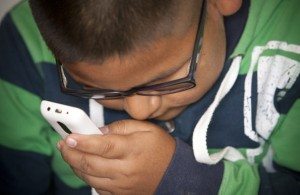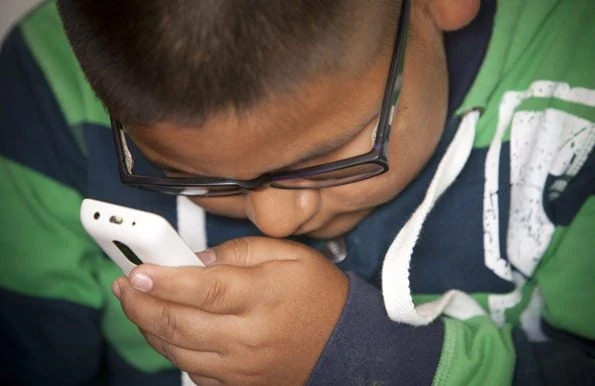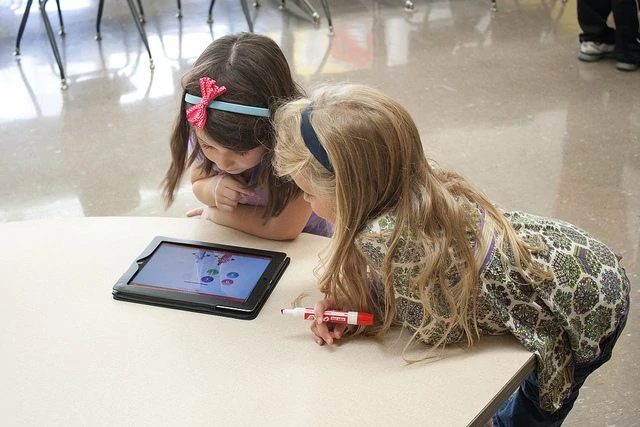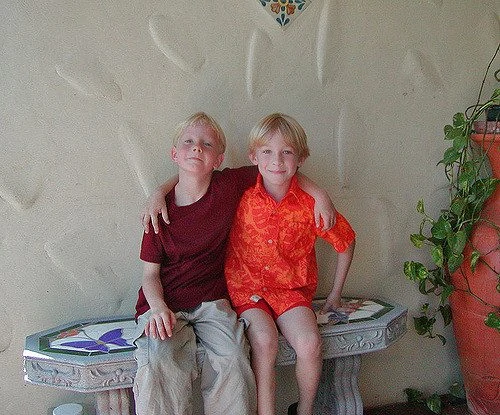In a recent New York Times article, Professor Sherry Turkle offered a stark example of how lack of empathy can play out in a school setting:
A few years ago, a private middle school asked me to consult with its faculty: Students were not developing friendships the way they used to. At a retreat, the dean described how a seventh grader had tried to exclude a classmate from a school social event. It’s an age-old problem, except that this time when the student was asked about her behavior, the dean reported that the girl didn’t have much to say: “She was almost robotic in her response. She said, ‘I don’t have feelings about this.’ She couldn’t read the signals that the other student was hurt.”
The dean went on: “Twelve-year-olds play on the playground like 8-year-olds. The way they exclude one another is the way 8-year-olds would play. They don’t seem able to put themselves in the place of other children.”
One teacher observed that the students “sit in the dining hall and look at their phones. When they share things together, what they are sharing is what is on their phones.” Is this the new conversation? If so, it is not doing the work of the old conversation. The old conversation taught empathy. These students seem to understand each other less.
That obsession with phones points to one major factor in the decline empathy observed among young people today.
One of the most cited studies of this phenomenon is a 2011 meta-analysis of research on empathy in college students. Its authors found a 40% decrease in empathy, and most of that occurred after cellphones became mainstream. While media is but one factor among many they considered to explain the decline, it’s an important one – and one not going away anytime soon.
The More Connected, the More Un-connected

Nine in 10 teens report going online every day, nearly a quarter say they are online “almost constantly,” and more than 70 percent have access to smartphones, according to a 2015 Pew Research Center survey. And teens are not casual web surfers. Among adolescents who own cell phones, 41 percent admitted that they felt “addicted” to their devices in a 2012 Common Sense Media study.
In fact, according to a new study out of Cardiff University, more than 1 in 5 teens reports that they “almost always” wake up in the middle of the night to check in on their various social media accounts. More than a third say they do so at least once a week.
While there are plenty of downsides to this kind of hyper-connectivity, perhaps the most profound is also the most ironic: The more connected we are online, the less connected we can become offline. Sure, there are good and important things we can get from relationships we cultivate mostly or exclusively online, but for kids, there’s a lot of critical social learning that only takes place in face-to-face exchanges, such as practice reading emotional cues.
Texting and other virtual communication become lost opportunities for developing empathy – a critical factor in developing prosocial behavior.
Teaching & Nurturing Empathy
Of course, the fact that empathy isn’t being learned is a testament to the fact that it can be learned – at any age, although as with anything, it may be easier for children than adults who have become set in habitual ways of thinking for many years. And while face-to-face conversation may be the most common and readily available way, there are other possibilities, as well.
The social-emotional games included in the Yoga Calm curriculum, for instance, provide “instant” opportunities for children not only to become more attuned to their own feelings, perspectives and attitudes but those of their classmates as information is shared and experienced together. The Friendship Game from Lynea’s Wellness 3 course is especially well-suited for helping children develop their empathetic skills:
Yoga Calm’s guided relaxations are also excellent for stimulating the imagination in ways that support the development of an empathetic mind-set. After all, the ability to empathize is dependent upon the ability to think imaginatively. In feeling empathy, we’re imagining what it must feel like to be in their shoes. This is one of the reasons why storytelling and, once children are old enough, reading fiction are so important for youth. They provide additional practice in expanding and strengthening the empathetic imagination.
Practices like these are covered in depth in our Wellness 3 Course, “Social and Emotional Approaches to Learning.” We regularly offer this course in Oregon, Washington and Minnesota, and it is always available online, so you can study where and when it’s convenient for you.
And what happens after kids begin developing their empathic abilities? Lynea shares this anecdote in our book Yoga Calm for Children:
Fourth-graders Jamie and Juan requested a meeting in my room. Juan was angry because, out on the playground, Jamie had called him a swear word. Now he was shut down. His arms were crossed, and he glared at Jamie.
I asked Jamie to tell me his side of the story, and he began to cry. He said that the students on the playground would not let him join in the games. He said that Juan had been one of his best friends, and even he wouldn’t let Jamie play. With tears running down his face, he told Juan, “I thought you would let me play. I thought I could count on you.”
Seeing Jamie’s emotion opened Juan’s heart, and he began to soften. He said that he was his friend, but that they were already involved in their game; it was too late to have
another person join.
The boys spent several minutes talking it out. They apologized to each other and agreed to play together during the next recess.
What do you think? How do you see children expressing – or not expressing – empathy today? What practices and processes have you tried to help children develop this critical life skill? What’s worked for you? What’s been less effective? Let us know in the comments!
Image by Orbis, via Flickr





